The Daily Star and UNDP jointly organised Nirbhoya for the third time to recognise six exemplary women
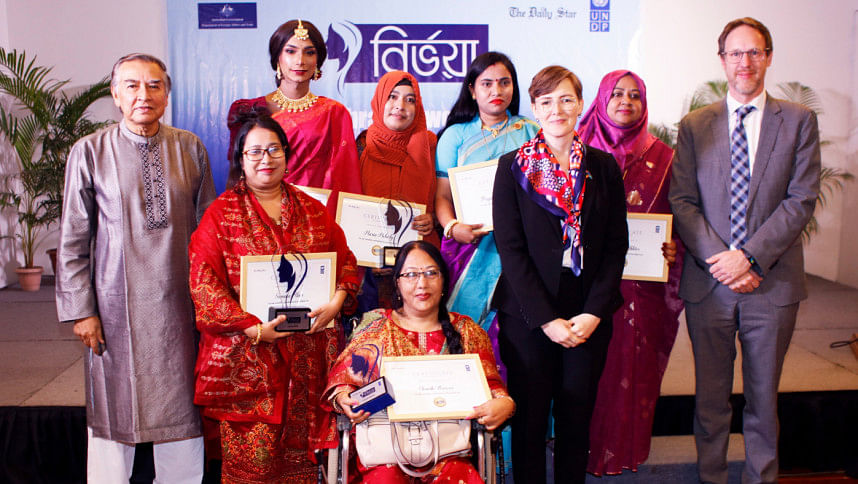
A symbol of hope for women with disabilities
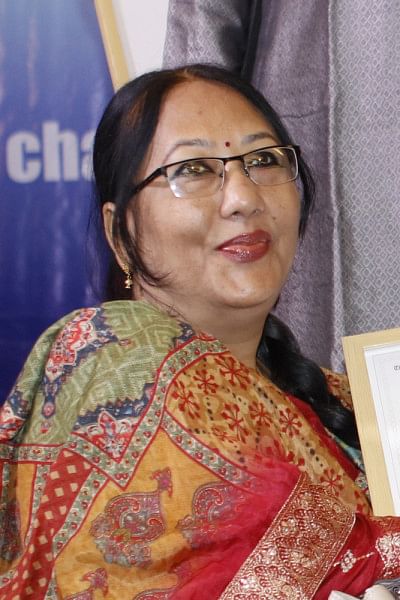
The life of people with disabilities can be particularly challenging in our country, but 49-year-old Chumuki Biswas has turned her own journey into an inspiration despite facing physical and financial hardships.
Chumki Biswas established Ankur Handicrafts, a handicraft shop located in Mymensingh Sadar in 2017, which has since offered employment opportunities to more than 40 women with disabilities. The shop has become a symbol of hope and empowerment for disabled women, providing them with a platform to showcase their skills and talents.
However, when the Covid-19 pandemic hit in 2020, Chumki's business was threatened. The sudden economic loss put her team and their families in jeopardy, and she was unsure how they would survive. Nevertheless, Chumki remained resilient and refused to lose hope.
During that critical moment, ekShop, an e-commerce platform developed by the a2i Program and UNDP, proved to be a lifeline for Chumki by providing her with essential training.
Throughout 2021-22, Chumki participated in three training programs offered by the ekShop initiative: She Means Business, Business Communication and Online Business Operation, and Capacity Building for Women Entrepreneurs with Disabilities. These training programs equipped Chumki with the necessary skills to navigate the digital landscape and adapt to the changing economic conditions. She also received a mobile phone and a Taka 50,000 grant from the Prime Minister's fund for women entrepreneurs.
"Before receiving training from the ekShop initiative, I had no idea about online business, but now I am able to send our products to various outlets in different parts of the world. We are receiving orders from France, Germany, Japan, and many other places," says Chumki.
She further shared her future plans, saying, "I aspire to build a factory with accommodation facilities where women with disabilities can work together."
Written by Priam Paul
Championing women empowerment through digitalisation
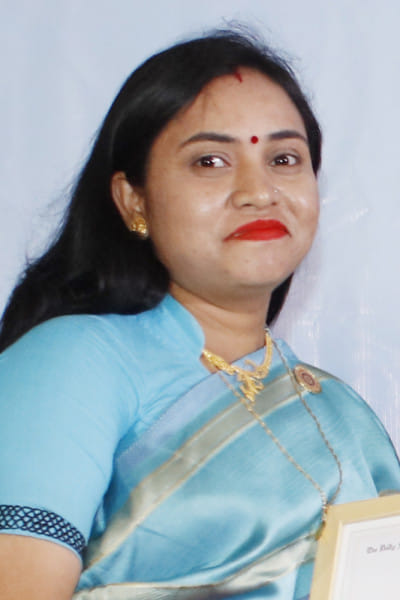
In today's rapidly advancing technological world, Priyanka Rani Sur, 28, realised that a gap in computer skills was hampering women employment in her village in Jashore. "In 2016, I decided to open a computer training centre for people in our village, especially for women, since travelling almost 20 kilomteres to the town for such training is nearly impossible for them," shares Priyanka.
She loaned money from an NGO, purchased three laptops, and began her journey with "Borno IT Institute" in Chhatiantala Bazar, Jashore. "Lugging three heavy laptops to the training centre, which was far away from my home, was challenging. Yet, I was determined to help the women in my community," says Priyanka.
Understanding the unique struggles of women, Priyanka made sure to charge a meagre training fee. Countless women utilised the training to go onto becoming teachers, creating online businesses, freelancing, and even becoming computer trainers themselves. "I had the honour of training a woman much older than me from a nearby village. She had completed her SSC but was then married off, feeling trapped in a life of domestic work with abusive in-laws. After completing her computer training, she escaped that life and is now working at a fulfilling job." This is one of the hundreds of success stories born in Borno IT Institute.
In 2018, Priyanka brainstormed a new idea - she initiated an e-commerce platform called "Deshi Feriwala", dedicated to selling women's handicrafts such as Nakshi Kantha, and local food items such as gur patali (molasses) online. Through this platform, she eliminated the need for middlemen who underpaid women, giving women the power to take full ownership of their products' sales.
Priyanka shared her gratitude towards UNDP Anondomela Platform and UN Women Women's Empowerment Principles (WEPs) Programme for helping to scale up her initiative and allowing her to understand gender issues on a more nuanced level, so she could better support the women her work directly impacts. "In the future, I hope to keep growing my institute, and empower as many underprivileged women as possible," concludes Priyanka.
Written by Mayabee Arannya
A mission for sustainability and women's health
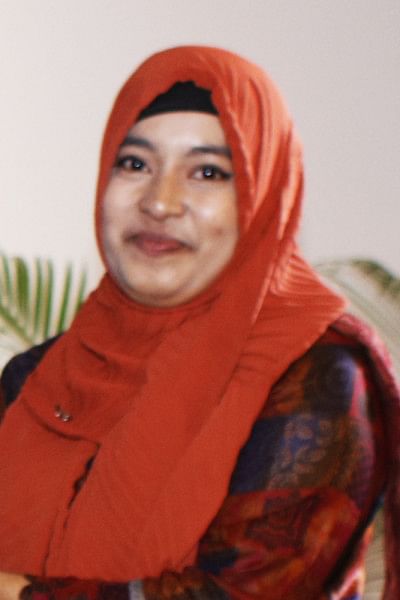
Maria Mehedy, an aspiring innovator and environmental enthusiast, has embarked on an ambitious mission to create Shuddhi - a biodegradable sanitary product and make it accessible to all women, regardless of their socio-economic status. Her passion for sustainability and her unwavering determination to make a positive impact on the world have led her to create a product that not only benefits women's health but also the environment.
At just 15 years old, Maria was inspired to create biodegradable sanitary pads after undergoing an ovarian cyst operation. Her experience with traditional cotton cloths during her periods led her to realize the importance of sustainable alternatives. Despite facing various hurdles, Maria's determination and passion led her to participate in environmental competitions and give presentations on reusability and biodegradability.
Years later, Maria's dream of creating a biodegradable sanitary product became a reality. As a computer engineering student, she participated in the innovation competition CHT Innovation Challenge 2022, which was organized by a2i iLab and UNDP and provided the necessary funding to bring Shuddhi to life.
Maria's vision for Shuddhi is to make biodegradable sanitary pads accessible to all women, regardless of their socio-economic status, and she plans to use organic cotton, bamboo fiber, banana fiber, plant-based starch sheets, and organic gum to produce the sanitary pads.
Maria reflects on her journey with pride and gratitude. Despite facing numerous challenges due to her humble background, Maria believes that small actions can lead to significant positive changes, and she remains determined to be a catalyst for that change.
Written by Sara Kabir
The courageous journey of a transgender entrepreneur
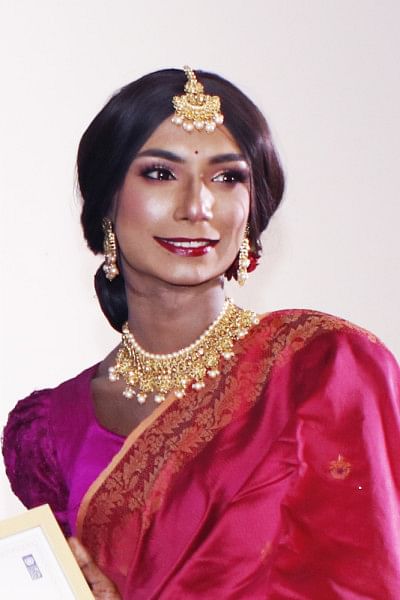
"Although I was born in a male body, I think and feel like a woman. I like dresses and dressing up, which became a threat to me," says Mowon, a transwoman and an entrepreneur from Savar. Because of her feminine attributes, she used to be bullied by her neighbours, friends, teachers, and even her family used to speak ill. Her parents separated when she was only 1.5 years old.
Despite all this mental pressure, she stayed headstrong and continued her study. Mowon joined Dhaka Polytechnic Institute's Civil Department after finishing SSC in 2019. She also attended a make-up course on beautification once she arrived in Dhaka.
Through social media, Mowon found many people like her, which helped her to gather the courage to do something herself instead of getting involved in odd professions. "That is when I got introduced to the organisation called Pothchola Bangladesh, which gave me a chance to work in various youth camps," shared Mowon. As a project coordinator at Pothchola, she helped many transgender people with relief funds and food during the COVID pandemic. Besides, she helped various transgender individuals to become entrepreneurs by conducting make-up workshops as a part of the organisation.
"Meanwhile, I started working in e-commerce. I received the Smart Women Entrepreneur grant of 50,000 Taka in 2022 through UNDP's Anondomela project with the help of Pathachala to grow my business," added the enthusiastic and strong-willed entrepreneur.
Currently, Mowon works as a make-up artist through her page "Mowon Makeover's", where she receives many projects. "I dream of establishing a parlour and boutique shop where I will appoint and train people from my community so they do not have to struggle for jobs," shared Mowon.
Written by Sarah Bintay Shakahwat
For the love of education
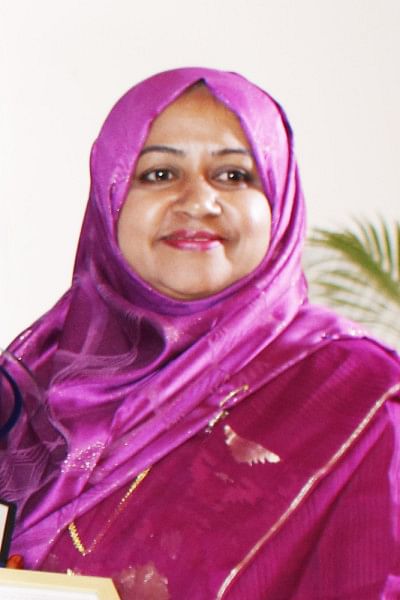
The Shikkhok Batayon programme has brought a significant transformation to the education scene in Bangladesh, and Ruksana Akther is among the pioneers who have made this change possible. By creating unique educational content online, she has enabled hundreds and thousands of teachers and students across the country to benefit from her passionate efforts.
Ruksana Akther's passion for education blossomed after completing Science Teacher Training in New Zealand. During her training, she witnessed the transformative impact of an effective teaching method and curriculum, inspiring her to bring this innovative approach to her country's education system. Thanks to the Shikkhok Batayon programme, she was able to take one step closer to realizing her dream.
Shikkhok Batayon was established under a joint initiative of the Education Ministry, the Primary and Mass Education Ministry, and the a2i Programme, which is jointly implemented by the ICT Division and the Cabinet Division, with support from UNDP.
"During the period of COVID-19, I had the opportunity to work with a2i, and they appointed me as the ICT for Education (ICT4E) District Ambassador. Working with Shikkhok Batayon inspired me to start my journey of establishing an online school. This programme truly empowered me as an educator," shared Ruksana.
So far, Ruksana has created over 300 individual pieces of content and 200 online classes on the platform, and is focused on expanding her own online school, Learn Biology.
Through the Shikkhok Batayon program, she was able to establish a network with teachers across the country, which has allowed her to share her knowledge with them.
"In the future, I want to focus on making science subjects more interesting, effective, and appealing to students. I also want to pursue a higher degree," concluded Ruksana.
Written by Aaqib Hasib
On a road less travelled
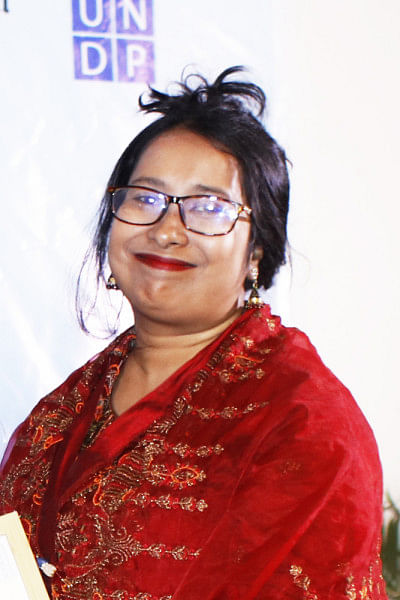
In 2018, Samina Alam found herself at a crossroads. She had recently received the ADB-Japan scholarship, which allowed her to pursue an MSc at the Asian Institute of Technology (AIT).
With hope in her heart and a dream to fulfil, Samina travelled to Thailand to pursue her degree. However, she learned she was pregnant within a week of starting AIT classes.
Caught in a dilemma that most South Asian women have to face, many of her relatives advised her to drop out of AIT and return home so that she could focus on becoming a mother.
However, Samina bet on herself and chose to continue her MSc while preparing to bring a new life into this world.
At times, life was not easy for her. On many occasions, Samina stumbled and struggled, breaking down in tears at the hurdles she had to face. But even in the darkest moments, she found the courage to stand up and fight back.
Her hard work paid off as she graduated and returned to Bangladesh with a new dream to better her hometown of Chattogram. Samina's interest in Improved Cooking Stoves (ICS) led her to win an ICS designing competition organised by Strengthening Inclusive Development in Chittagong Hill Tracts (SID-CHT)—a project of the Ministry of Chittagong Hill Tracts Affairs and UNDP—with technical assistance from a2i's iLab and financial support from Global Affairs Canada.
This helped Samina survey and develop her cooking stoves while allowing her to apply her theoretical knowledge in practice. A major reason behind women's heart and lung diseases is the smoke from straw stoves widely used in hillside areas. Samina's ICS will help to better such conditions.
Speaking on her overall experience, Samina Alam said, "This was a whole new experience for me, and I was able to learn how to set up and pilot a project. Hopefully, once my innovation in ICS is developed, I will better the lives of those living in the Chittagong Hill Tracts."
Written by Aaqib Hasib

 For all latest news, follow The Daily Star's Google News channel.
For all latest news, follow The Daily Star's Google News channel. 





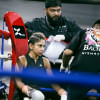


Comments